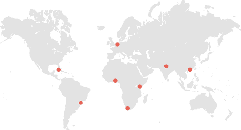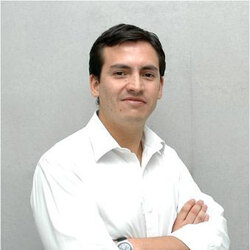Shenzhen
Research Project
The Politics of Eco-cities: New Environmental Metaphors in China
In recent years, ideas of sustainable development have supposedly found their architectural expression in the form of eco-cities around the world. In China, different arrangements between market and state actors have been tested under the ‘green’ umbrella of the eco-city model. These – products of common visual, planning, and discursive practices – have produced contradictory results, spanning from projects currently on hold to others where ambitious proposals have been completely transformed into conventional business parks. In this context, this research aims at understanding the practices involved in the imagination, planning and communication of eco-city projects in China and their role as tools of interaction with state and market actors. Through a review of project information such as images, project archives, and technical reports, as well as interviews and press articles, this research will explore the design process and communication tools deployed for three case studies: Dongtan eco-city, Tianjin eco-city, and Guangming New District. The proposed foci for this analysis include: first, the design of new eco-cities as a juxtaposition of negotiated imaginations of nature and the built environment; second, planning as a process of change, amalgamation, and adaptation to local models and practices; and third, the exploration of the sustainable language as a mode of communication with authoritarian politicians, diplomats, and investors. As the political implications of the design of eco-cities still remain scarcely discussed, or simply beyond scrutiny, this research proposes to instigate such a debate by contributing empirical evidence of the strong link between politics and cities embedded in current tools of communication of sustainable ideas.
Braulio Eduardo Morera – PhD Candidate in Human Geography
University College London – Geography Department
Braulio Eduardo Morera is an urbanist and designer with a background in architecture and social sciences. He obtained his BArch and professional degree from the Pontifical Catholic University of Chile and his MSc in City Design and Social Science at the London School of Economics. His professional experience includes urban plans in Asia and Europe, such as Dongtan and Wanzhuang eco-cities in China as well as a number of projects in Chile, Colombia, Brazil, Malaysia, Singapore, Saudi Arabia, Spain, Netherlands and the UK. He currently works as an associate leading urbanisation and planning projects as well as resilience research at the Arup International Development team in London.
He divides his time between practicing as international development consultant and urbanist and as PhD researcher at the Urban Lab, University College London. His research interests are the social dimensions of sustainability and the politics associated with the communication and implementation of urban projects. Inspired by the changing ways in which China’s artists, designers, planners, developers, and politicians visualise the transformation of their cities, Braulio Eduardo’s current doctoral research explores the evolution, motivations, and practices associated with visualisation of nature and cities in the Reform Era.
Braulio Eduardo Morera is an urbanist and designer with a background in architecture and social sciences. He trained as architect at the Pontifical Catholic University of Chile and obtained an MSc in City Design and Social Science at the London School of Economics. His professional experience includes urban plans in Asia and Europe, such as Dongtan and Wanzhuang eco-cities in China as well as a number of projects in Chile, Colombia, Malaysia, Singapore, Saudi Arabia, Spain, Netherlands and the UK. He currently works as an urbanisation and planning specialist in the Arup International Development team in London.
His current projects involve: research in the field of urban resilience and its operationalisation; provision of design & strategic advice to a UN agency in Latin America & the Caribbean and Africa; planning and regeneration projects for municipal governments in Latin America; and coordinating research projects on community-based resilience for IFRC in Latin America and the Caribbean. He divides his time between practicing as international development consultant and urbanist and as PhD researcher at the Urban Lab, University College London. His research interests are the social dimensions of sustainability and the politics associated with the communication and implementation of urban projects.




